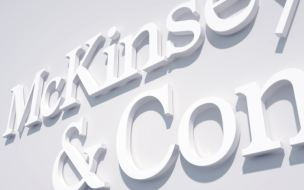The program is focused on team work, leadership and communication skills, among other key themes. “These soft skills represent the table stakes for management roles,” said Gavin, who joined Altran AG as a senior consultant after his MBA. “They provide the necessary competences for managing complex projects, which underpin today’s business strategies.”
He joined the French business school after a decade project managing at software companies in the UK. Gavin started HEC’s program with the ambition of working for an international consulting firm. “It provided the perfect mix of duration, flexibility and international exposure,” he said.
Altran, the listed French consultancy, has 21,000 employees in over 20 countries. Gavin is based in Geneva, Switzerland. “An MBA is the ideal further education course to… Make you a real asset in a corporate environment,” he said.
Many companies value the MBA degree, but employers are increasingly placing value in soft skills – a cluster of personality traits such as team working, communication and interpersonal skills.
“It’s not just experience and technical expertise employers seek. They also look for professionals with outstanding non-technical or soft skills,” said Bill Driscoll, a regional president at Robert Half International, the leading HR consulting firm.
“Companies need staff who are leaders, excellent communicators, and [are] able to align their business units' goals with the firm’s big-picture objectives.”
According to a recent alumni survey by the Graduate Management Admissions Council, soft skills account for three of the five top skills MBAs use every day on the job, while interpersonal skills are the most frequently used.
It is these types of skills that helped Fabian Piira secure a job at Morgan Stanley, the investment bank. He studied a ten-month Master of Management at the Fuqua School of Business before joining the bank as an M&A analyst.
“Those soft skills were very helpful throughout the subsequent job application process,” said Fabian, who joined Morgan Stanley in July last year. “They helped me craft my presentation and resume.”
He enrolled on the Master’s program in 2012 after working at Citi, a financial services firm, in Frankfurt. “We were working through real-world business problems in the lectures as well as in small groups,” said Fabian, who was also president of the MMS Finance Club. “I feel that I can now capitalize on that every day at work.”
It is not just students who say soft skills are beneficial. Recruiters want to see a good collection of these traits, and they can help differentiate you from the competition.
Interpersonal skills are valuable for a career at Infosys, according Julia McDonald, head of talent acquisition for the EMEA region. The leading consulting, technology and outsourcing company plans to hire about 250 MBAs this year.
“Working with people across cultures at Infosys [is important]. We are a global business and we have a global delivery model,” she said. “Within teams, you might be [working] across the globe with people with different backgrounds, cultures and views. That’s what makes us stronger.”
Lynsey Douglas looks for people who are capable of coping in a fast-paced environment when recruiting for eBay, the online market place. “In terms of soft skills... Multi-tasking is a good skill – will ask people to juggle multiple priorities at the same time,” said talent acquisition partner Lynsey, in an interview with BusinessBecause.
“Candidates should be excited and willing to progress, as we’re looking for MBAs who can serve as the next generation of leaders at eBay.”
Business schools have been trying to create closer ties with businesses. By putting management theory into practice, MBAs are better equipped to “hit the ground running” when approached by recruiters, according to Anthea Milnes, head of marketing for graduate programs at Cranfield School of Management.
But it is not just tradition functional learning such as finance and accounting that MBAs must apply to real projects. “Employers often value soft skills such as management, leadership and team working as highly as functional understanding, quantitative ability or analytical skills,” Anthea said.
Some schools have made the development of soft skills a core part of their curriculums. Italy’s MIP Politecnico di Milano launched a new executive MBA program, Flex EMBA, which uses distance as well as classroom learning.
The modules taught at MIP’s campuses will focus on soft skills and leadership development, said Federico Frattini, the program’s director. “They [EMBA students] will join the faculty of the MBA and other companies, to interact with students and share their knowledge.” He expects to have executives from the Boston Consulting Group, Procter & Gamble and Microsoft Italia involved.
Schools are placing a greater emphasis on leadership development. Nick Holley, co-director of the Henley Centre for HR Excellence, argues that leadership development is essential for companies to generate the best returns. Henley Business School polled 350 executives, the majority at director or CEO level. More than 70% cited leadership as their company's next major challenge.
But Heather Giese, who leads General Electric's Experienced Commercial Leadership Program, said that it is soft skills that set leaders apart. “There isn’t a quintessential GE leader,” said Heather. She added: “A successful GE leader is grounded, well rounded and very humble. I call it the natural rockstar.”
GE, the multinational conglomerate, hires about 100 MBAs each year for its ECLP program. GE considers it to be its flagship MBA talent-development course – many alumni join the company on a permanent basis.
Bill said that Robert Half still sees persistent demand for MBAs from companies with corporate leadership development programs.
“Professionals with an MBA, in-demand technical expertise and outstanding soft skills can quickly secure three or four employment offers if they choose to enter the job market,” he added.
RECAPTHA :
54
43
88
9a








